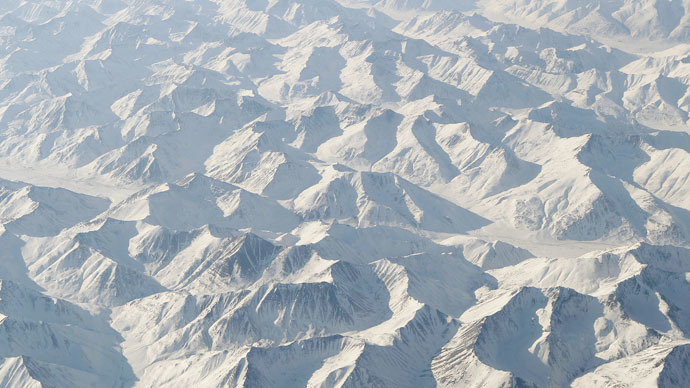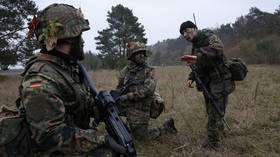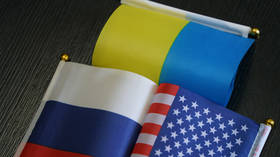Mysterious 'ice booms' across North America linked to wet, cold weather

Cold booms? Frost quakes? A winter-time meteorological phenomenon has scientists debating whether blasts heard across North America are, indeed, cryoseisms. Most agree that the loud, inexplicable booms are associated with cold, rainy conditions.
These ice booms have rattled houses in Georgia, caused the earth to shake in Montreal, and led law enforcement from several Oklahoma counties on an unfruitful search to locate the ruckus.
"It was this very loud boom that happened all of a sudden," Marjorie in Idaho, who asked that her last name be withheld, told RT. "My son and I went to look to see where it came from. It sounded like a door slamming very hard or something big falling down on the patio. But we couldn’t find anything. We watched the news later to see if anyone knew what it was, but no one did.”
“It was so loud the house shook. My kids ran in yelling, ‘what was that mommy?’” Tracy Walker, of Kennesaw County, Georgia, told WAGA.
Residents in these areas thought the booms could be fireworks, gun shots, or blown transformers. But meteorologists have offered a less threatening, more fascinating explanation.
The cold temperatures are literally creating earthquakes that shake my house. #cryoseism#frostquake#CanadaProblems
— Matthew Holly (@MatthewHolly) January 8, 2015
If you heard weird explosion type noises a few days ago chances are it was a #frostquake. Yeah it's a real thing. https://t.co/UNEZOQa5b6
— John Olin (@imanbaby) January 7, 2015
Had 1st #frostquake report in Fishers. Assuming won't be the last after Sunday night's soaker & cold this morning http://t.co/mx4pmSDUp1
— Sean Ash (@SeanWTHR) January 14, 2015
Sounded like fireworks going off every few minutes around my house in Bourget Ontario last night. #icequake#frostquake#cryoseism
— Carl Parisien (@whatsuphotdog) January 6, 2015
A ‘frost quake’ is what’s known as a cryoseismic boom, which happens when temperatures rapidly fall below freezing after a rainfall.
"All of a sudden that ice starts to expand — it's like having a lid on top of a bottle, that pressure builds and builds until finally something gives, the ice expands, the pressure is released, the ground cracks and we hear what sounds or even feels like a very localized earthquake," said Jay Scotland, meteorologist for CBC in Toronto.
"This is not an earthquake. It's ice expanding under the ground, and it leads to a loud boom and gets folks pretty scared when it happens in the middle of the night. Very rare, very cool but very scary."
Hear any loud bangs last night in Toronto? Temp drops → soil moisture freezes → ice expands → ground cracks → BOOM! #frostquake#cryoseism
— Jay Scotland (@JayScotland) January 3, 2014
“The pressure grows until it breaks out and is released,” said David Phillips, a senior climatologist at Environment Canada. “That's the big boom. It's all that energy.”
According to The Weather Channel’s website, cryoseismic booms are “generally harmless, causing nothing more than small cracks in the ground and a bit of confusion” from people nearby.
Yet National Weather Service meteorologist Matthew Day told the Associated Press he’s not completely convinced the booms heard around North America are part of cryoseismic activity.
“There are some stories going around that’s what it was, but based on the research we’ve done here, it doesn’t appear what people heard is related to the cryoseism phenomena,” he said. “There’s not enough moisture, and the temperatures are not cold enough. That happens in areas where you have a lot of water flowing through a lot of rock.”
But he added that he does not have an explanation for what, exactly, causes the ice booms.
“We don’t know what it was, we just know what it is not,” he said.












